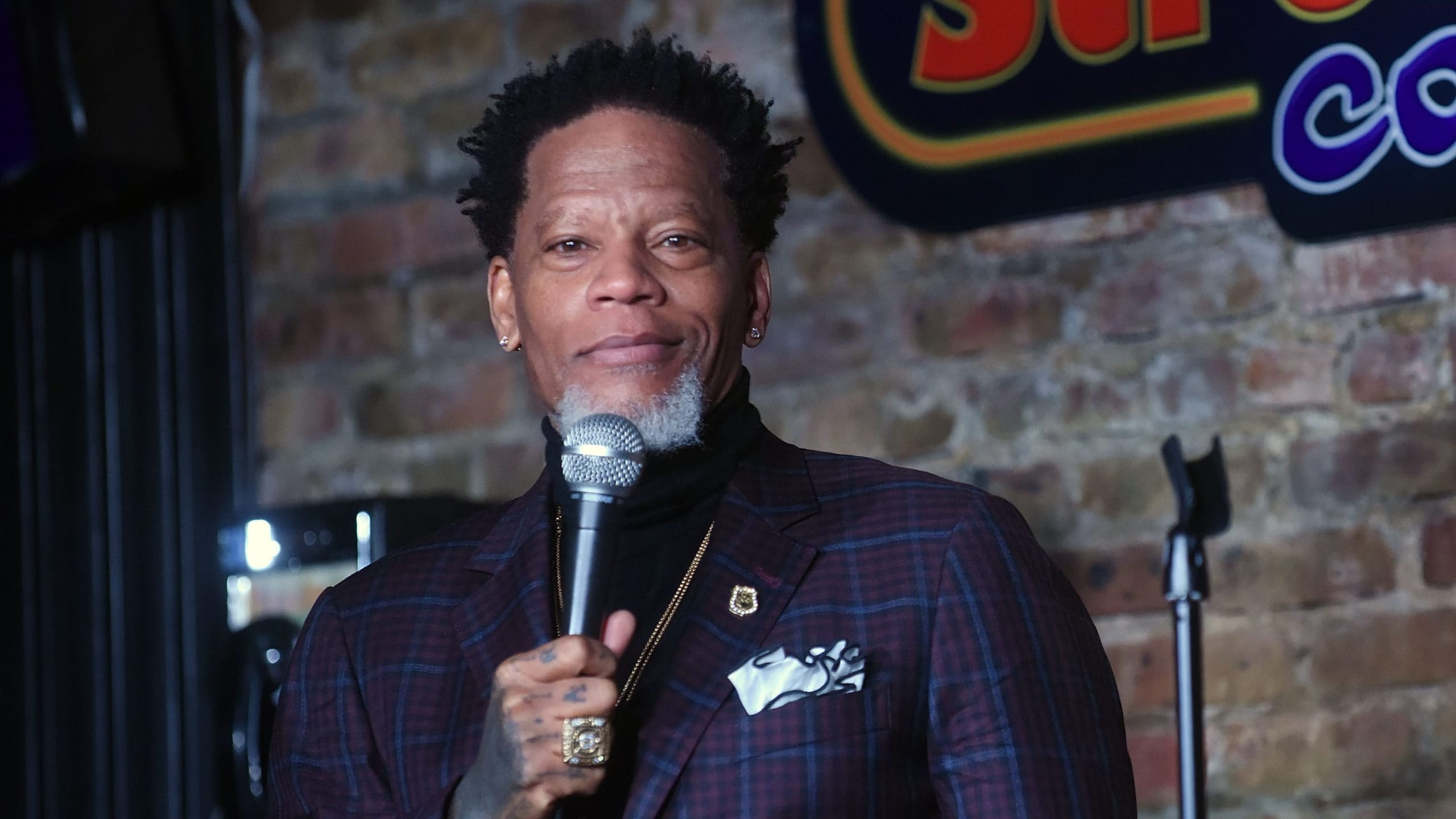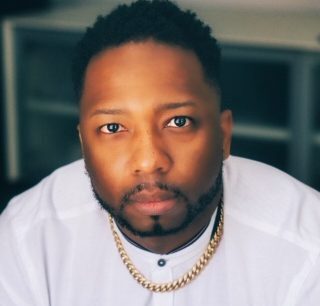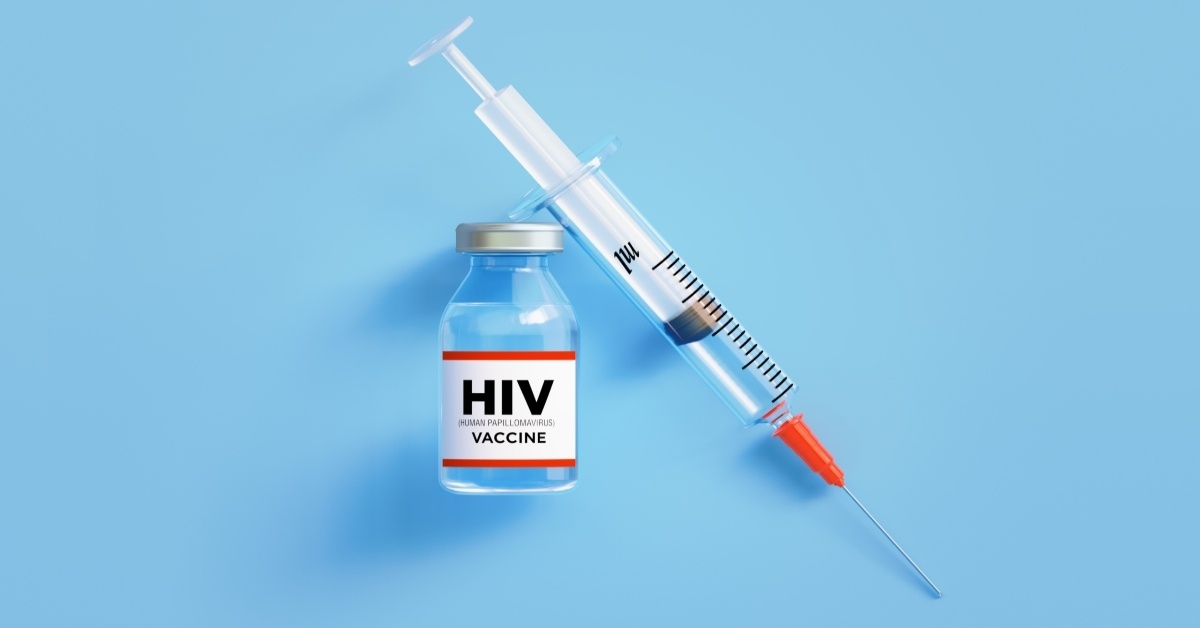Comedian D.L. Hughley brings awareness to rising multiple myeloma rates in Black communities
OPINION: Hughley, a passionate advocate for Black health and ambassador of the That's My Word campaign, is getting the word out on the silent but deadly disease that disproportionately affects Black people. The post Comedian D.L. Hughley brings awareness to rising multiple myeloma rates in Black communities appeared first on TheGrio.

OPINION: Hughley, a passionate advocate for Black health and ambassador of the That’s My Word campaign, is getting the word out on the silent but deadly disease that disproportionately affects Black people.
Editor’s note: The following article is an op-ed, and the views expressed are the author’s own. Read more opinions on theGrio.
Initially, when comedian and radio host D.L. Hughley’s elderly neighbors in South Los Angeles grumbled about chronic back pain and fatigue, he thought nothing of it. Older Black folks kept their health information private, and Hughley dare not ask for fear of getting into “grown folk business.”
Over time, word spread that multiple myeloma — a silent, but deadly blood cancer shared by former Secretary of State Colin Powell and jazz legend Howard Tate at the time of their deaths — was popping up as the culprit; first three people then five then seven.
Hughley’s first thought was “what’s causing this?” and his second was “how do we prevent this?” — a sobering reminder that this trend would continue if nothing was done about it.
March is Multiple Myeloma Awareness Month, and advocates, survivors and even celebrities like Hughley are lending their voices to the cause. And it couldn’t come at a better time.
The impact of multiple myeloma on Black communities is staggering. According to the International Myeloma Foundation, Black people will make up nearly a quarter (24%) of all newly diagnosed cases by 2034 if nothing is done — an astonishing rate given that Black Americans make up only 13% of the population (currently, Black people are 20% of all myeloma cases). Black Americans are also twice as likely to receive a diagnosis of multiple myeloma compared to white Americans; and while Black people, on average, receive earlier diagnosis compared to white people, the cancer is often found in its more advanced stage, when the disease is more aggressive and harder to treat.
These disparities exist, in part, due to a lack of knowledge about multiple myeloma and unequal access to care. Poor health literacy and health inequity delay diagnosis, treatment initiation and access to newer and more advanced medicines. Structural racism that puts Black people in harm’s way further compounds the problem.
For Multiple Myeloma Awareness Month, we delve into the importance of getting the word out with an Original King of Comedy, D.L. Hughley, a passionate advocate for Black health and ambassador of the That’s My Word campaign, designed to raise awareness of multiple myeloma.
“Killers get to be silent because we’re silent.”
After recovering from COVID-19, Hughley wrote a book called “How to Survive America,” a fearless satire that exposes racism’s unjust toll on our bodies and minds, inspired by his experience with the U.S. health care system.
“My bout with COVID-19 really made me think about how Black people live in America. Black people often live in areas that are dirtier and more polluted and that causes health conditions to pop up,” Hughley told theGrio. “Growing up I knew seven people in the neighborhood who had cancer. Seven people. There was likely an environmental impact but nobody ever came over to see where the source of this cluster came from.”
Hughley’s thoughts have been echoed for years by health advocates who lament the lack of research funding put towards uncovering the cause of disease clusters in predominantly Black and brown communities.
Multiple myeloma is particularly mysterious — the rare blood cancer typically appears in African Americans over the age of 60. For unknown reasons, the body begins to overproduce plasma cells, immune system cells used in blood clotting and a number of other processes in the body. Over time, these plasma cells form tumors in the bones, crowding out healthy red and white blood cells in the bone marrow that protect us from infectious agents like viruses and bacteria. Plasma cell cancer also decreases the effectiveness of vaccines, including those for COVID-19.
Early symptoms are vague — you may experience bone pain (especially in the spine or chest), weakness and constipation. Most people initially attribute their symptoms to some other less ominous medical condition, but without a prompt diagnosis and treatment, symptoms like frequent urination and mental fogginess or confusion may appear, a sign that these cancer cells have spread to other parts of the body such as the kidneys.
While researchers have yet to discover the exact cause of multiple myeloma, it appears that a combination of genetic predisposition and exposure to cancer-causing (carcinogenic) toxins in the environment triggers the disease. Those with a first relative with multiple myeloma are more likely to develop the disease as are carpenters, miners and other people who have been exposed to cancer-causing agents such as radiation, asbestos, benzene, pesticides and other chemicals used in rubber manufacturing.
These known risk factors heighten the urgency of medical and public health professionals to inform people of potential environmental threats, ways to avoid them, early signs and symptoms, and the free or low-cost resources that are available in your community.
Even more, studies show that Black patients achieve better outcomes than any other racial or ethnic group when treatment is initiated early, underscoring the importance of greater access to screening, newer and more advanced medications, and routine checkups with a health care provider.
That’s why Hughley decided to join the That’s My Word Campaign — to further the on-the-ground conversations that often fuel health movements in the Black community.
“Killers get to be silent because we’re silent,” says Hughley. “If we’re silent from your perspective or my perspective, it can be detrimental. Think about how many secrets Black people keep, even about multiple myeloma. There are people who are sick… and either didn’t know or worse, didn’t tell anyone about it.
“Gone are the days where we can pretend that these things don’t exist. We have to be more responsible stewards of our health. We have to make not only ourselves aware but the public at large aware of the things that we deal with and the need for testing, treatments and protocols… all the things that we need,” Hughley continued.
“Nobody is gonna be a better author of your health than yourself but sometimes we need some help.”
Hughley doesn’t claim to be the arbiter of truth, but he has identified a rise in misinformation and the difficulty in deciphering between fact and fiction.
“We have smothered truth in its crib and now that we need it, it’s nowhere to be found,” Hughley said. But the comedian does contend that the responsibility for Black health is shared between society and the people.
“Nobody is gonna be a better author of your health than yourself but sometimes we need some help,” a lesson Hughley says he learned during his bout with COVID. “The simplest things can have the most positive effects. I didn’t know that vigorous exercise regularly helps offset a number of things. Drinking water, resting, eating better… all decrease your cancer risk. Obviously, there are some hereditary things that determine your risk but really so much of our health is based on how healthy we are mentally and physically,” he recounts.
“Every action is a step towards our commitment to make a difference.”
That’s My Word brings together Hughley and a number of trusted voices within Black communities — including those at risk of multiple myeloma, care partners, healthcare providers, and advocacy organizations, to issue a national call to action to make a Multiple Myeloma Promise — or pledge — that will create better health outcomes in Black communities.
A Multiple Myeloma Promise can be one of many things: from a promise of a health care provider to be a better advocate for change in the healthcare system to someone making a commitment to getting the facts about multiple myeloma and sharing that information with their family and friends.
“It’s a powerful statement to get the facts,” Hugley said. “Every action is a step towards our commitment to make a difference. To make sure you know the facts, that you’re talking to people, making sure you have a relationship with a doctor, getting screened … and making sure you’re doing everything you can to stay healthy. That’s just a no-brainer to me.”
Visit ThatsMyWordMM.com to learn more about the campaign and how to get involved. You can also follow the conversation and make your own Multiple Myeloma Promise on social media using the hashtags #ThatsMyWordMM and #MMPromise.
The full interview with D.L. Hughley will be available Thursday, March 16 on “The Revolutions Within Us” podcast.

Dr. Shamard Charles is the executive director of graduate studies in public health at St. Francis College and sits on the Medical Advisory Board of Verywell Health (Dot Dash-Meredith). He is also host of the health podcast, Heart Over Hype. He received his medical degree from the Warren Alpert Medical School of Brown University and his Masters of Public Health from Harvard’s T.H. Chan School of Public Health. Previously, he spent three years as a senior health journalist for NBC News and served as a Global Press Fellow for the United Nations Foundation. You can follow him on Instagram @askdrcharles or Twitter @DrCharles_NBC.
TheGrio is FREE on your TV via Apple TV, Amazon Fire, Roku, and Android TV. Please download theGrio mobile apps today!
The post Comedian D.L. Hughley brings awareness to rising multiple myeloma rates in Black communities appeared first on TheGrio.












![Brandy and Monica Address Past ‘Confusion and Conflict’ While Announcing ‘That Boy Is Mine’ Joint Tour [Video]](https://www.lovebscott.com/wp-content/uploads/2025/06/3e4c19e4ced74fcca75359da112c255d_md.jpg.webp)